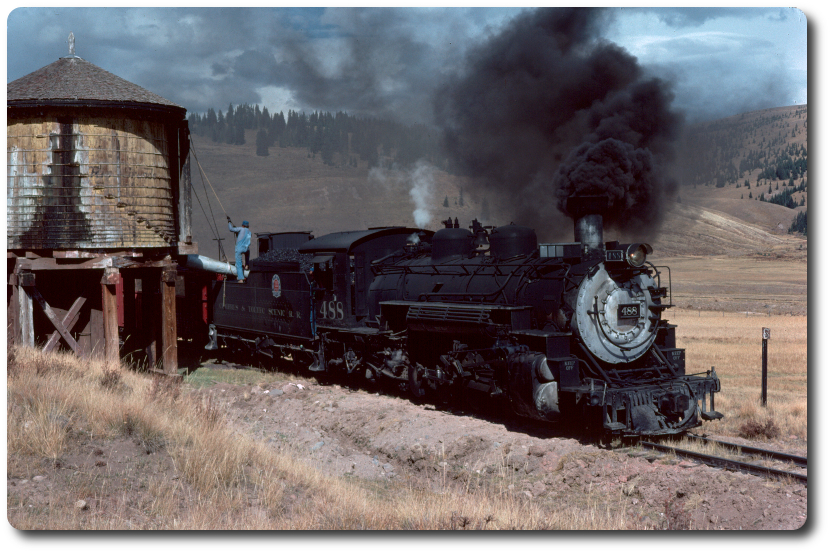I am an environmental engineer and a grad student in Water Quality...so I can provide a little bit of insight here.
As a rule of thumb, surface water has minimal dissolved minerals in it. The issue with it is pathogens. A common treatment chain for surface water is to coagulate it (add a chemical which causes clay particles & such to fall out), filter it, and disinfect it (typically chlorine). Some more expensive approaches are to add an absorption process (activated carbon) or a membrane. Brita filters are activated carbon...more expensive bottled water is membrane water (which requires adding minerals afterward to avoid other problems). As long as their aren't many suspended solids in surface water, I would think that it ought to be fine for locomotives.
Groundwater is very different. It is not abnormal to just pump it from the ground, add a little chlorine and possibly fluoride, and off it goes to the taps. There is not need to deal with solids or pathogens as they are filtered out by the rocks/dirt on the trip from the surface to the water table. The result of passing around the rocks is that limestone and such will dissolve into the water (just like in the formation of caverns). This hardness does not affect your health at all...but it does affect other things. Soap for instance, will break down rather quickly if exposed to high levels of hardness. It won't be able to lather and clean before it is useless. If the hardness level is too low, it won't rinse off. Modern soap is designed to deal with this...as are home water softeners.
If you live a region with really hard water, you ought to some time take a pan and fill it with water. Let it boil for a while...and you'll begin to see minerals forming (much like in a coffee pot or a steam locomotive's boiler).
I don't know the particulars of Farmington...but I suspect that it had something to do with high levels of either hardness or solids. One is harmless for drinking...the other is easy to remove (btw, pure water isn't so fine for drinking...we leave minerals and add stuff for very good reasons).
Michael
timtrain488 Wrote:
-------------------------------------------------------
> Was this "well water" or was this "river water"?
> I'm not familiar with Farmington so any help is
> greatly appreciated.
>
> If this was well water, is the city of Farmington
> still fighting this battle today with all the
> "stuff" in the water? How hard is it to make it
> potable for people?
>
> OD out



